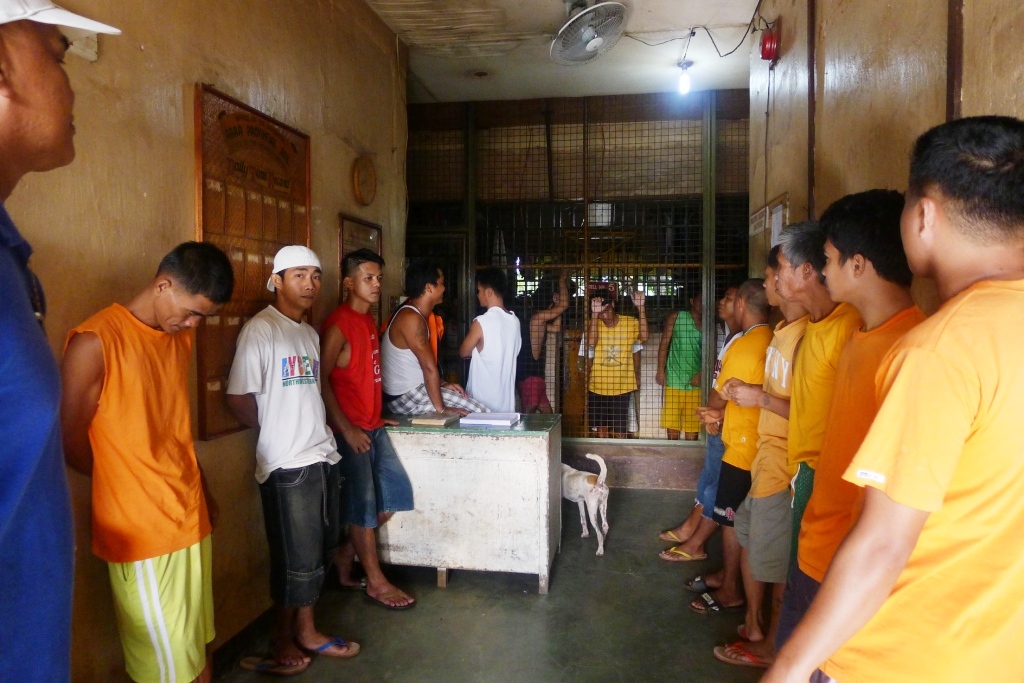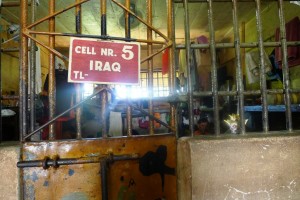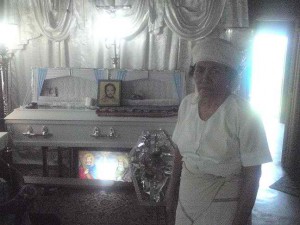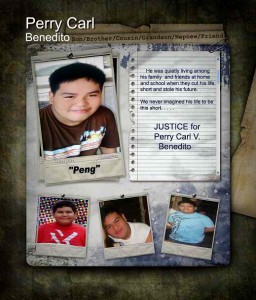
By ARTHA KIRA PAREDES
BANGUED, Abra—The filing of certificates of candidacy for local positions last week signals the approaching election season, and for inmates at the Abra Provincial Jail (APJ), this could mean one thing: Freedom.
If the prisoners are to be believed, politicians or their representatives will soon be heading for the APJ to bail some of them out or arrange their temporary release so they could serve as goons during next year’s elections. The official campaign period for local elections will start on March 29 and end on May 11, two days before election day.
Politicians bailing out inmates during elections is not endemic to Abra; it is known to happen nationwide. But this landlocked, mountainous province has been a consistent election hotspot because of political rivalry, aggravated by the supposed presence of loose firearms and private armed groups. Now, people have an idea where politicians get their goons.
In an essay written by a group of inmates here two years ago, they said elections are the time they gain importance because politicians try to bargain with them.
“Nu sakbay ti eleksyon adu ti politico nga um-umay bumisbisita ti pagbaludan ta engaywen da ti balud nga irwar dan ket kasukat na a pagserbian na daytoy politico nga mangirwar kadakuada (Prior to the elections, politicians visit the prison to strike a deal with inmates—their services in exchange for their freedom),” wrote a group of prisoners who participated in an essay writing contest held in celebration of the 2010 Abra Week for Peace.
“Ket no malpas ton ti eleksyon a nangabak ni politico nga switik, agtakaw ton daytoy ti kaban ti gobyerno ta subbotenna tay gastos na ta pangpasueldo ken pangpakanna kadagiti ‘goons’ na (After a politician wins by cheating, he steals from the coffers of the government to gain back what he spent on the food and salary of the goons he employed),” the essay titled Abra Ipatpateg Ka (Abra, I care for you) said.
The provincial government launched the contest, the first and only time in 2010, to get the perspective of prisoners on why there is violence in Abra. Inmates were divided into six groups. Curiously, a number of entries mentioned politicians in discussions about violence in the province.
Abra Ipatpateg Ka was not the winning entry. Bumangonen ti Abra (Abra will rise), which explained the history of violence in Abra, was adjudged best essay.
The winning entry said, “Merciless politicians in power took advantage of Martial Law, and this is where the dynasties that made use of money and guns started.”
When the dictatorship ended in 1986, traditional and neophyte politicians ruled but dynasties and warlordism persisted, it further said.

The winning essay said politicians took advantage of the political and economic crisis at the time and the prevalence of firearms and money made the justice system more ineffective.
Private armies, it said, came from the paramilitary force Citizen Armed Force Geographical Unit (CAFGU ), the Cordillera People’s Liberation Army (CPLA) that broke away from the communist New People’s Army (NPA), as well as underworld characters, criminal elements and other citizens in need and forced to become members of private armies.
The APJ has 109 inmates. OIC Provincial Jail Warden Amelito Barbero said about 40 percent of them are facing murder charges while the rest are involved in cases such as rape and robbery. The only jailed minor, he said, is also facing a murder case.
While most inmates charged with murder are allegedly guns for hire or even members of private armed groups who work for different politicians, they all get along well and peacefully coexist in jail, Barbero said. There have been no politicians sighted visiting the inmates since he assumed office two years ago, he added.
Barbero could not recall any particular incident where prisoners were released to the custody of politicians or instances where politicians processed bail in behalf of inmates. It has always been the immediate family and relatives who have been working on the release of the prisoners, he said.
No escape has been reported since Barbero became warden, but just last August, Jomar Bersalona, a known hit man allegedly working for one of the most influential political families of Abra, was killed in the premises of the Don Quintin Paredes Hall of Justice here.
Bersalona, who Barbero said was even escorted by his father, an APJ guard, was attending the arraignment of his illegal possession of firearms case.
In April 2010, an election year, the Philippine National Police (PNP) listed four private armies with 77 members in Abra and in the entire Cordillera Administrative Region (CAR).
Police Regional Director Chief Superintendent Benjamin Magalong, who assumed his post late last year, has been frequently visiting Abra to meet with local leaders in an effort to promote peace and order. In the first quarter of 2011, police records show, shooting incidents occurred every three days.
Speaking at the Bangued town plaza during the fiesta last February, Magalong said meetings with the leaders yielded positive results. “One thing that we have probably attained because of that meeting, finally the shooting stops, the killings stop. But this is only temporary, this is only momentary,” he said.
Magalong then challenged the people of Abra to build a solid foundation for peace and order. “We in the police force cannot provide you that solid foundation, the political figures here cannot provide you that solid foundation, only the community of Abra can provide you that foundation, the people of Abra themselves should find a lasting solution so that we will be able to attain peace and order in this province,” he said.
The PNP official also “declared war against the guns for hire, the killers,” saying they had “better leave Abra” because it will be a “deadly place” for them. He said he was personally committing his career to “make sure that Abra will become peaceful.”
Abra, located some 400 kilometers north of Manila, is one of the six provinces of CAR. It has 27 towns, 303 barangays and a population of 234,733 as of May 2010. It is among the country’s 20 poorest provinces.
When the Ateneo School of Government surveyed 150 respondents from different towns in 2009, results showed that 22.7 percent agreed that it is more acceptable to kill than steal and 36.7 agreed that it is okay to kill for survival.
The survey also found that 34 percent agreed that violence is normal and part of everyday life.
In a recent interview, VERA Files asked two of APJ prisoners facing murder charges if they would be willing to kill in exchange for their freedom. Both said yes without flinching.

